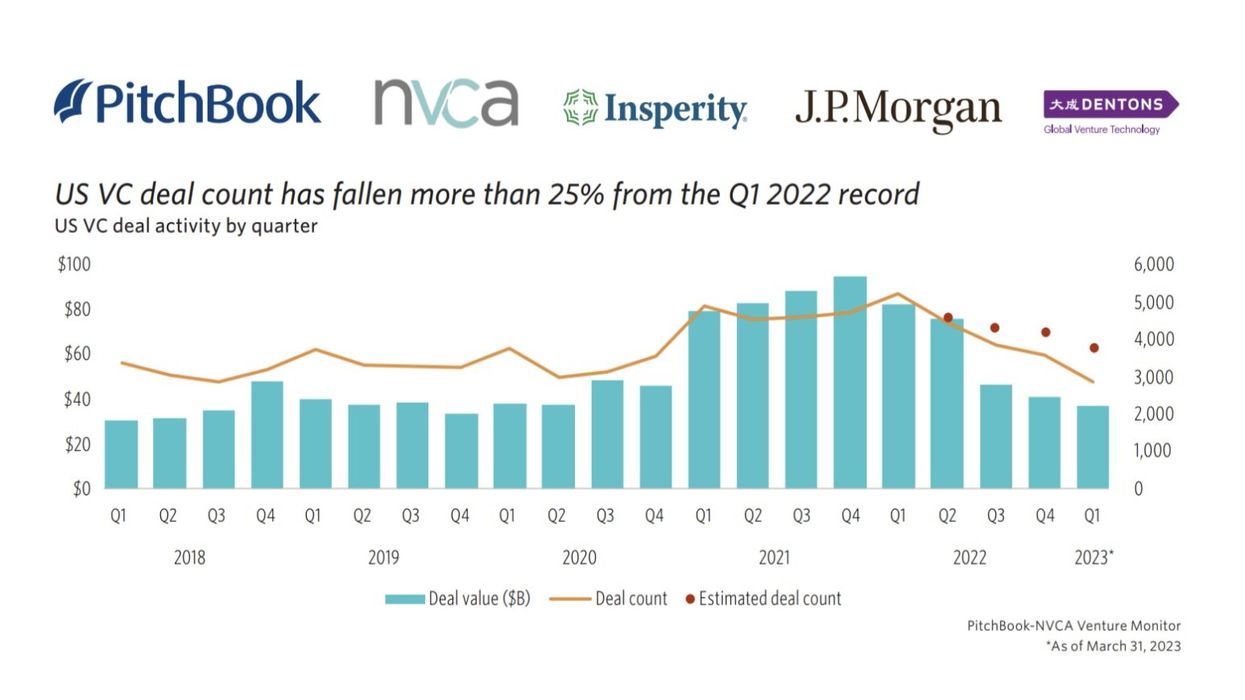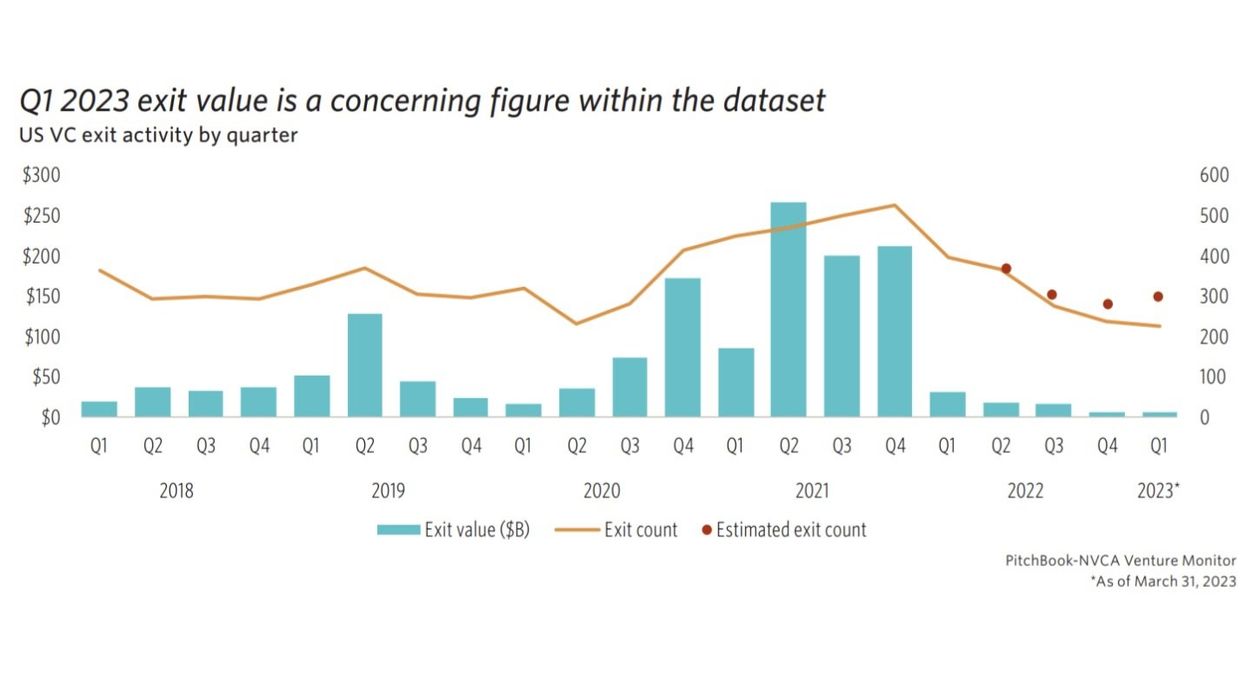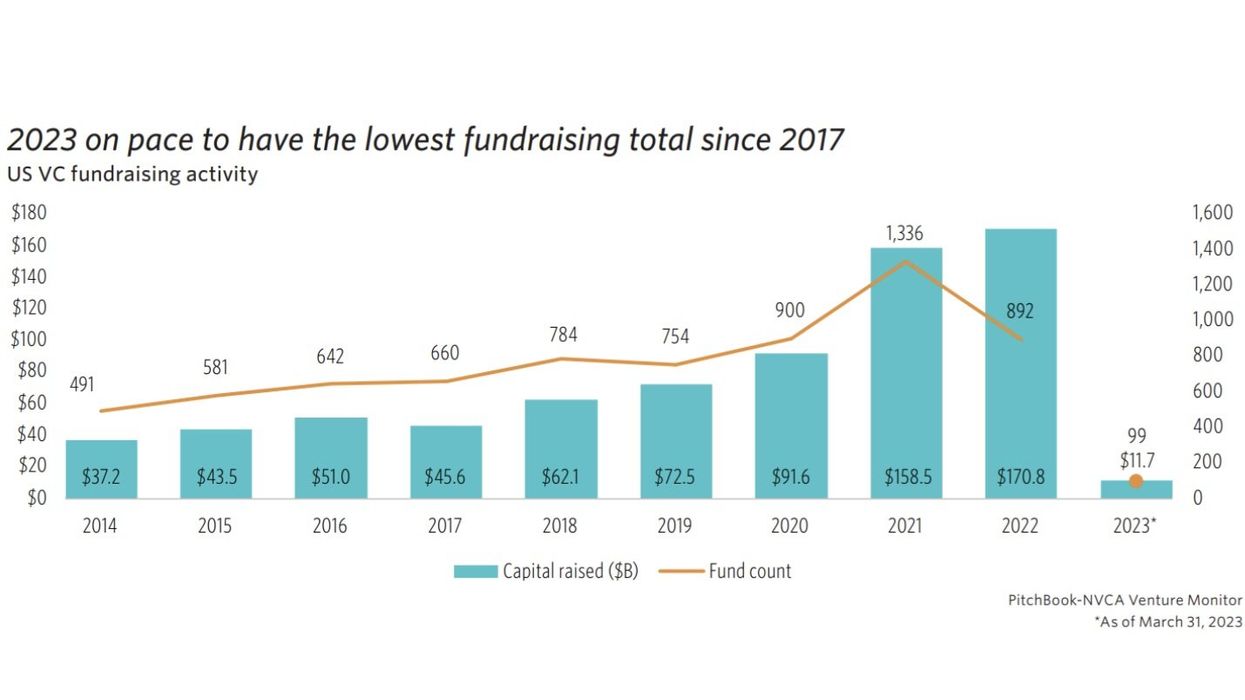This is the web version of dot.LA’s daily newsletter. Sign up to get the latest news on Southern California’s tech, startup and venture capital scene.
Compared to other California counties, LA is doing a bit better than expected when it comes to investing in startups. That’s according to Carta, a San Francisco-based cap table management company that digitizes and manages equity investments for startups, that recently conducted a survey of its data to see which areas of the U.S. are hardest hit by the venture funding slump.
Somewhat surprisingly, Carta’s study co-authors Kiley Roache and Peter Walker noted that LA’s venture ecosystem is now doing better in terms of cash raised than the previous three years. In 2022, LA startups tracked by Carta raised $7.2 billion, up from $5.3 billion in 2020.
Notably, Walker added, artificial intelligence startup investments weren’t included in this study since it was “a difficult one to categorize” as many incorporate AI as one part of their overall business model.
Here’s a few standout takeaways from the report.
LA’s “anchor industry” is consumer technology, but biotech is growing
Walker defined an “anchor industry” as one that takes up around 15% and 25% of deals in an area. And not surprisingly, consumer tech remains one of LA’s anchors according to Carta.
About 11% of the area’s total funding tracked by Carta in Q4 2022-Q1 2023 went to consumer tech firms.
While biotech only accounted for 2% of investments on Carta in the previous two quarters, Walker noted that the sector was less affected by a downturn than other areas, especially in San Diego, which remains a hub for the market. Recently, LA-area biotech company Acelyrin went public in the largest biotech IPO since 2021. The deal, worth $621 million, was also larger than any IPO that happened last year.
Seed stage valuations are rising, even as deal count drops
Carta reported that seed stage deals are the only type of deal on the rise in LA county. Series A valuations have decreased steadily for four straight quarters beginning in the first quarter of 2022. And Series B valuations have basically plateaued, while the cash raised in these rounds has decreased.
But both the cash raised by and the pre-money valuation of seed-stage startups increased in the last two quarters, according to Carta’s report.
Carta’s report found that in the first quarter 2023, the average seed round in LA totaled $3.7 million, compared to a national average of $3.1 million. And the average valuation of a seed-stage deal nearly reached its previous peak in the second quarter of 2022, at $17.8 million. The seed-stage valuation in LA also has surpassed the national average the last two quarters.
That said, tech valuations overall are decreasing. VCs told dot.LA in April they’re expecting a drop in valuations “trickle down” from later-stage funding markets to the seed stage eventually. There’s been arguments that seed stage valuations (both in LA and across the country) are over-inflated.
“A lot of VC funds in late 2022 [and] early 2022 as the market was starting to turn, had already raised seed stage vehicles and were looking to deploy more capital into the early part of the ecosystem,” Walker explained. Adding that, because the IPO market is still effectively “closed,” there’s been a downturn in later-stage deals since there isn’t much of a runway to public markets.
LA’s funding predicament could have been worse
Overall, LA ranked fifth – behind San Francisco and New York, predictably – in overall capital invested in startups. But according to Carta’s data, it was one of only seven counties to top $1 billion in direct investments on their platform.
Carta also reported that total deal count in LA nearly halved in the last quarter – 22 deals in first quarter 2023, compared to 49 in fourth quarter 2022.
Across the board, investment into LA county was down 39.4%.
Though compared to other areas LA’s investment community has still not been as hard-hit by a pullback in funding. For context, San Francisco’s startup funding value was down nearly 60%, while New York, San Mateo and Santa Clara counties were all down at least 50%.
Software-as-a-service is booming
Across the board, B2B SaaS firms did well in the last quarter of 2022 and first quarter 2023. In this six-month period, software companies in LA raised more money than any other, at 40%.
That’s compared to other top industries, including 12% of investments in gaming, 11% in consumer technology, 6% in energy, and another 6% in cleantech.
The startup types with the lowest investment in LA included hardware (4%), fintech (3%), and education (3%). Adtech, entertainment and Web3 businesses accounted for half a percent each, Carta noted.
LA remains a strong competitor to the Bay Area venture ecosystem
San Francisco remains in a league of its own when it comes to tech investment deal flow. But LA is increasingly standing up to it. The study noted that the majority of fundraising in Southern California happens in LA.
“I'm always consistently a little bit surprised about how LA and the surrounding counties really stack up to the Bay Area,” Walker noted. “It is really quite mature as an ecosystem for venture capital.”
- Here Are the dot.LA/PitchBook 50 Hottest Los Angeles Startups for Q2 ›
- How To Startup Part 4: What Happens To Startups During a Downturn ›
- LA is the Third-Largest Startup Ecosystem in the US ›




